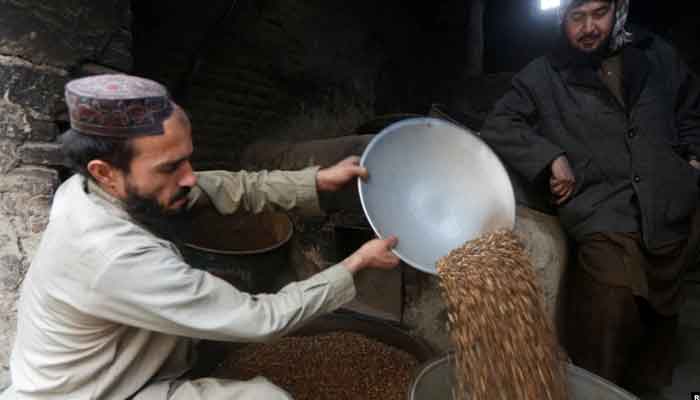China resumes trade with war-torn Afghanistan
This is the first time that the Islamic Emirate of Afghanistan has exported goods to China under the new Taliban-led government
November 12, 2021

At a critical time when the doors of international trade are almost shut on Afghanistan, and as a humanitarian catastrophe looms large, China reopens trade with Afghanistan.
This month, more than 45 metric tons of pine nuts were sold by the war-ravaged country at the 4th China International Import Expo.
The Expo ran from November 5 to November 10 in Shanghai.
The pine nuts fetched an estimated 10 million yuan ($1.56 million) for Afghanistan.
This is the first time that the Islamic Emirate of Afghanistan has exported goods to China under the new Taliban-led government. It is important to mention here that China has yet to officially recognise the Taliban government.
According to Taliban’s spokesman Zabihullah Mujahid, Afghanistan resumed the export of pine nuts to China on Sunday (November 01), as reported by China’s Xinhua news agency.
"A cargo plane carrying pine nuts took off from the Kabul International Airport to China, after officials of the Islamic Emirate of Afghanistan inaugurated the air corridor," Mujahid wrote on Twitter.
On the launch of the China-Afghanistan trade, the Chinese ambassador to Afghanistan Wang Yu also tweeted: “The first flight of Afghanistan’s pine nuts of this year arrived at the Pudong Airport, Shanghai, from Kabul. Great job of cooperation of our 2 countries and peoples. Income for Afg farmers, nice taste for Chinese cousumers. Win Win.”
China’s acting consul general in Lahore, Peng Zengwu, also told Geo.tv that at this juncture, when Afghanistan desperately needs global trade to avert a humanitarian crisis, “China pine nut trade with Afghanistan has injected new life in the business of Afghan traders. China will never leave the Afghan brethren people in lurch. It will continue its efforts for peace and development in Afghanistan.”
Pine nut trees grow in eight eastern provinces of Afghanistan, namely Khost, Paktia, Paktika, Kapisa, Kunar, Nangarhar, Nuristan and Langham.
Separately, efforts are afoot to revive Afghanistan economy by connecting it with the China-Pakistan Economic Corridor, a signature project of China’s ambitious Belt and Road Initiative.
China also plans to relaunch trade with Afghanistan through its 46 miles shared border at the mountainous Wakhjir Pass.
However, the Wakhjir Pass is not an official crossing point. There is no road access reaching the Pass on the Afghan side, although the Pass was part of the Silk Road.
The previous Afghan government intended to build a 50 km highway through the rough terrain to access China by road for the first time in history. The project may be revived by the Taliban government.











